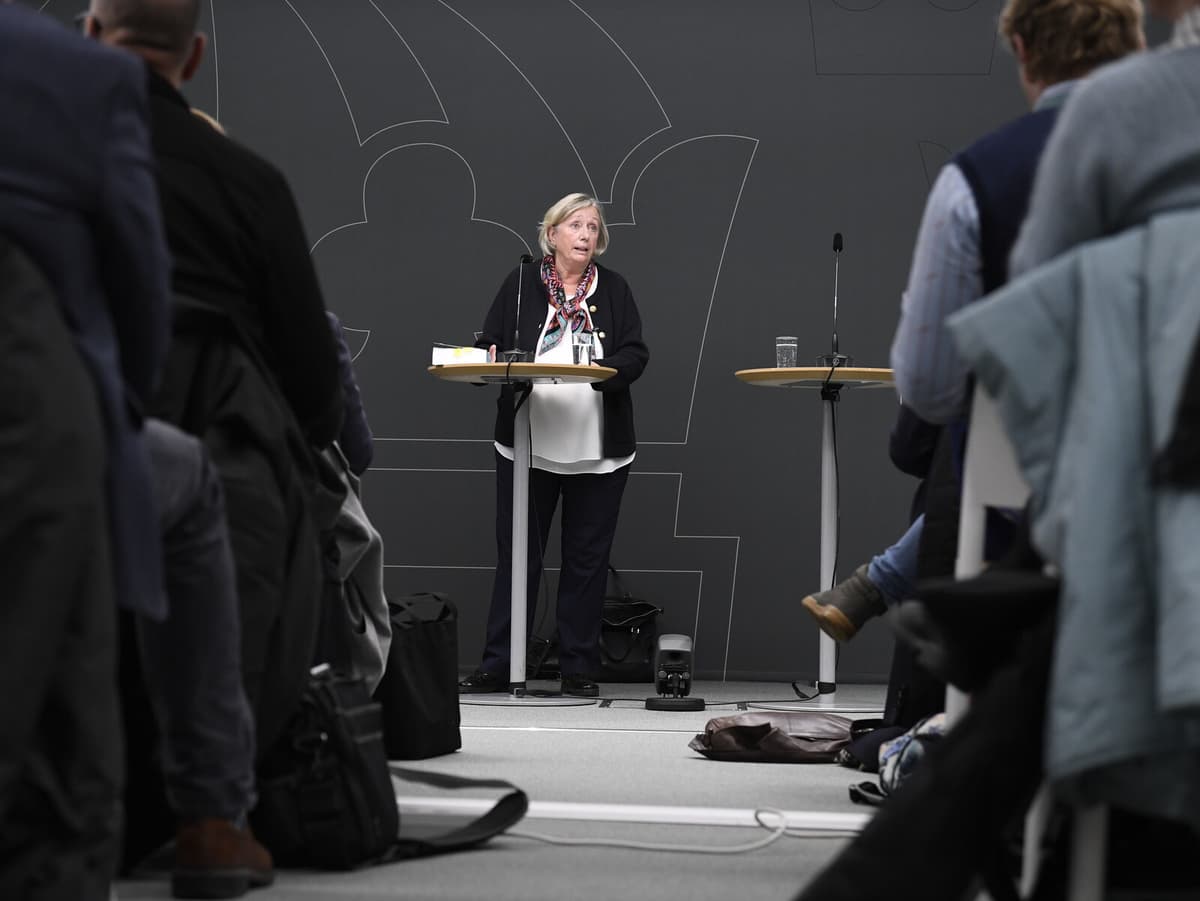It's about people who are staying in Sweden without having the right to do so. According to estimates, it's about 100,000 individuals – and in this group, there are everything from people who are being exploited and mistreated to criminals who have committed serious crimes.
With the goal of being able to find and deport more people, the government and the Sweden Democrats have agreed on an information duty, called "informer law" by critics, where employees will report to the police when they come into contact with people who are staying in Sweden without permission.
The issue has simultaneously been infected between the Liberals and the Sweden Democrats, where the Liberals have pushed for more exceptions.
Great risks
According to the government's investigator, neither schools, healthcare, nor social services will be required to provide information about people who are illegally in the country.
The reason is that the risks are considered too great. For example, people may not dare to seek medical care, and crime victims, such as those subjected to human trafficking, may refrain from seeking help in acute situations. Children may also not want or be allowed to attend school.
It means that we would not live up to our commitments according to the Convention on the Rights of the Child, but also according to our own domestic legislation, says investigator Anita Linder.
Instead, six authorities are proposed to be covered by the information duty, including the Tax Agency and the Social Insurance Agency.
Many of these authorities have probably also wanted to inform before, but have not been able to due to confidentiality rules, now it will be possible to do so, says Linder.
The investigator also submits several other proposals to get more people to return. She herself does not believe that the information duty is the most effective.
What we believe will be most effective for returns is primarily the proposal to be able to search electronic communication devices (such as mobile phones), an extended use of biometrics, and that the work on internal alien control can become more effective.
"Great exaggerations"
The Minister for Migration also emphasizes that it is a package of measures and announces that the government will do as the investigator proposes.
We have had a debate over the past two years that has been characterized by great exaggerations, where people in opposition and organizations have deliberately created great anxiety among many people, says Forssell.
We think it's important to be able to give a clear message, about the exceptions but also about our intention to move forward with the many other forward-looking proposals in the investigation.
# Information duty
The Employment Service, the Enforcement Authority, the Social Insurance Agency, the Pensions Agency, the Prison and Probation Service, and the Tax Agency will provide information about a foreigner to the police if there is reason to believe that the foreigner does not have the right to stay in Sweden.
# More effective internal alien control
A new basic requirement is proposed for when a control may be carried out. The police will be allowed to work intelligence-based and make selective controls based on information.
# Mobile phones and computers may be seized
The police will, in certain situations, be allowed to seize and search, for example, mobile phones and computers to better clarify a foreigner's identity.
# Fingerprints in more cases
It will be possible to store biometrics (such as fingerprints) in all cases concerning residence permits. Today, it is only allowed in asylum cases. The age limit for fingerprints will be lowered from 14 to 6 years. Biometrics will also be allowed to be used in citizenship cases to verify identity and good character.






